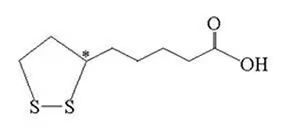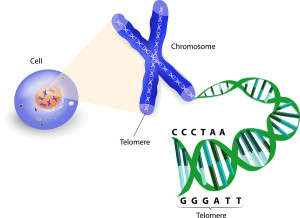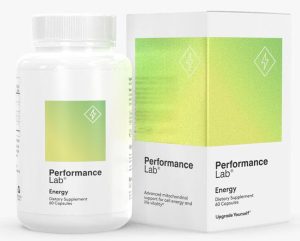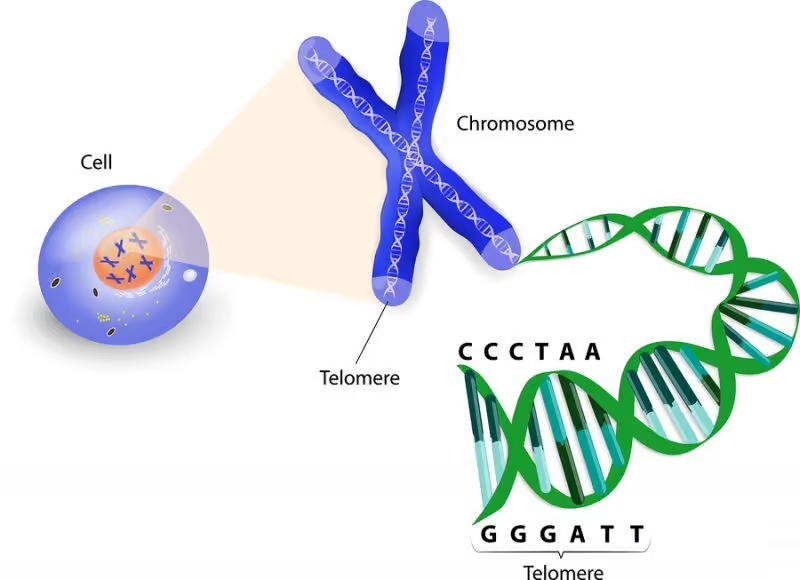Table of Contents
Alpha-Lipoic Acid (ALA) is a sulfur-containing fatty acid naturally found in your body. Lipoic acid is unique among other antioxidants because it is both water- and fat-soluble.
You get small amounts of lipoic acid in your diet from spinach and collard greens, broccoli, beef and organ meats.
But lipoic acid declines in your body as you age. So you need to supplement with Alpha-Lipoic Acid to achieve the levels your body needs to run optimally.
With the unique ability to work in all cell environments, lipoic acid can neutralize free radicals. Damaging free radicals resulting from oxidation in cells is implicated in many types of age-related diseases.
Lipoic acid can navigate cells throughout your body. Which means it can also easily cross the blood-brain barrier.
Alpha-Lipoic Acid has powerful protective benefits against cognitive and neurological diseases like Alzheimer’s, Parkinson’s and depression.
Alpha-Lipoic Acid helps:
- Protect Neurons. Alpha Lipoic Acid has a powerful ability to neutralize the damaging effects of oxidative stress. Studies show lipoic acid even reducing brain damage after a stroke.[i]
- Neurotransmitters. Lipoic acid boosts the production of acetylcholine and glucose uptake in the brain. Showing promise in preventing or managing Alzheimer’s Disease.[ii]
- Brain Energy. ALA regenerates other depleted antioxidants (Vitamins C & E, glutathione), and recycles CoQ10. Reducing inflammation, and getting rid of heavy metals. Boosting cellular energy and memory.
What is Alpha-Lipoic Acid?
Alpha-Lipoic Acid is an antioxidant produced in small amounts in your body. You also get it from eating spinach and collard greens, broccoli, beef and organ meats.

Alpha-Lipoic Acid (ALA) is a unique antioxidant because it is both water- and fat-soluble. Meaning it works in all parts of the human cell. The more lipoic acid you have in your system; the more antioxidant benefits you experience.
You need alpha-lipoic acid’s antioxidant power. Because it regenerates other antioxidants that were depleted by the ongoing fight with free radicals in your cells. It allows you to use the antioxidants Vitamin C & E, glutathione and CoQ10 already in your body over and over again.
In fact, alpha-lipoic acid is so efficient at what it does, it boosts the energy in your cells while reducing inflammation, and getting rid of heavy metals.
In your brain, alpha-lipoic acid boosts the production of the neurotransmitter acetylcholine. And even increases glucose uptake in brain cells. Providing you with a boost of mental energy.
Alpha-Lipoic Acid is used throughout your body. It helps increase insulin sensitivity which reduces the threat of diabetes. And ALA reduces the chances of metabolic syndrome which is associated with cardiovascular disease, diabetes and weight gain.
Alpha-Lipoic Acid vs. S-Lipoic Acid vs. R-Lipoic Acid
Lipoic Acid is also known as Alpha-Lipoic Acid, ALA and Thioctic acid. The Alpha-Lipoic Acid you get as a supplement is usually a 50/50 mixture of R-(natural) and S-(unnatural) enantiomers. They are mirror images of each other and called a ‘racemic’ mixture.
Most commercially available forms of Alpha-Lipoic Acid include the ‘S-form’, or unnatural form of lipoic acid. Chemically synthesized in 1952, and not found in nature.
It is thought that the two enantiomers differ biologically. But much of the research done over the last 30 years has been with the racemic version of Alpha-Lipoic Acid because the R-form was not commercially available.
S-Lipoic Acid (the enantiomer not found in nature) may not produce the most essential benefits of Lipoic Acid. Including interactions with proteins, enzymes and genes.
 R-Lipoic Acid is the form of lipoic acid occurring naturally in the human body, animals, and plants. This is the only form that functions as a co-factor for mitochondrial enzymes involved in energy production.
R-Lipoic Acid is the form of lipoic acid occurring naturally in the human body, animals, and plants. This is the only form that functions as a co-factor for mitochondrial enzymes involved in energy production.
Be aware that most commercially available forms of Alpha-Lipoic Acid include both S- and R-forms of lipoic acid.
Alpha-Lipoic Acid is produced as a mixture because R-Lipoic Acid, when separated from the S-form, is very unstable. And deteriorates very quickly making it unusable as a dietary supplement.
Very few companies go through the complicated, expensive process required to remove the synthetic S-ALA from R-ALA. So unless the bottle specifically states 100% R-ALA, you’re getting a 50/50 blend.
Know that R-ALA may be up to 12 times more effective than S-ALA.
How does Alpha-Lipoic Acid Work in the Brain?
Alpha-Lipoic Acid boosts brain health and function in several ways. But two in particular stand out.
- Alpha-Lipoic Acid boosts acetylcholine, a neurotransmitter tied to memory and overall brain function.
ALA is required for acetylcholine production by activating choline acetyltransferase and increases glucose uptake. This process supplies Acetyl-CoA for the production of acetylcholine.[iii]
- Alpha-Lipoic Acid is a promising weapon in the fight against neurodegenerative diseases like Alzheimer’s.
Oxidative stress plays a key role in cognitive disorders because neurons are highly vulnerable to free radical damage.
A recent study showed that lipoic acid may help slow down the progression of Alzheimer’s Disease. An area where no known cure has been produced by the big pharmaceutical companies.
In this study 43 patients with dementia were given 600 mg of Alpha-Lipoic Acid daily for 4 years. Researchers concluded from this study, “alpha-lipoic acid might be a successful ‘neuroprotective’ therapy option for Alzheimer’s disease.”[iv]
How things go bad
As we get older, our brain chemistry and metabolism changes.
↓ Acetylcholine levels decline
↓ Oxidative (free radical) damage in neural cells
↓ Heavy metal accumulation in cells
All of these age-related changes are contributing factors to the neurodegenerative diseases of aging, including Alzheimer’s, Parkinson’s and dementia. But even if you’re not concerned with the effects of aging, Alpha-Lipoic Acid can help.
Alpha-Lipoic Acid benefits
Research from hundreds of studies have shown that Alpha-Lipoic Acid will:
- Increase the production of acetylcholine
- Improve memory and learning ability
- Restore the health of neurons
- Boost cognitive performance and memory in Alzheimer’s patients.
Alpha-Lipoic Acid is both water- and fat-soluble and quickly crosses the blood-brain barrier after you take it.
ALA improves your brain function and learning processes by directly increasing the production of acetylcholine.
Alpha-Lipoic Acid also helps regenerate depleted antioxidants in your system including Vitamins C and E, glutathione and Coenzyme Q10.
By reducing inflammation and heavy metals in your brain, you boost cognitive processes and fluid thinking.
How does Alpha-Lipoic Acid feel?
Users of Alpha-Lipoic Acid report that supplementing with this nootropic helps with reduce nerve pain, fibromyalgia, better memory and recall and less mental fatigue.
Alpha-Lipoic Acid’s provides brain support because it has the ability to boost acetylcholine. So should boost cognition in all age and gender groups. And it helps transport glucose into mitochondria for the synthesis of ATP giving you a energy boost.
 Your entire body, even your DNA is under endless assault. This assault is caused by everything from poor diet to pollution. And your brain cells are getting hit by free radicals thousands of times per day. This oxidation is damaging your cells.
Your entire body, even your DNA is under endless assault. This assault is caused by everything from poor diet to pollution. And your brain cells are getting hit by free radicals thousands of times per day. This oxidation is damaging your cells.
Antioxidants fight back against these free radicals. When you supplement with Alpha-Lipoic Acid, not only are you using arguably the most effective free radical scavenger on the planet. You’re regenerating antioxidants like Vitamin C & E, glutathione and CoQ10.[v]
And they join the fight against free radicals alongside Alpha-Lipoic Acid.
Alpha Lipoic Acid Clinical Research
Alpha-lipoic acid plays an essential role in mitochondria. The heart of energy-generation in the human cell. Scientists at Emory University School of Medicine found ALA can stimulate telomerase, the enzyme that lengthens telomeres.
The effects of many chronic diseases can be traced back to telomere shortening. (Telomeres are the ‘caps’ on the end of each chromosome in your DNA).
Any treatment that can restore healthy telomeres has great potential in the fight against chronic disease.
 In this study scientists showed Alpha-Lipoic Acid boosted the production of PGC1-alpha. The telomerase that lengthens telomeres. And they did it in just one day of treatment.[vi]
In this study scientists showed Alpha-Lipoic Acid boosted the production of PGC1-alpha. The telomerase that lengthens telomeres. And they did it in just one day of treatment.[vi]
Alpha-Lipoic Acid Reduces Wrinkles
A topical solution of 5% Alpha-Lipoic Acid was applied to the faces of volunteers. This double-blind, placebo-controlled trial showed a reduction in facial lines, almost complete eradication of fine lines, and an overall improvement of skin color and texture in most volunteers.[vii]
Alpha-Lipoic Acid Critical for Cellular Energy
Cellular energy is behind every single action that happens in your body. Including your brain. Cellular energy is required for muscle movement, producing new cells, wound healing and thinking.
The mitochondria in each of your cells is the source of this energy. This ongoing energy production process is call the Krebs Cycle. Alpha-Lipoic Acid is a cofactor to two key enzymatic reactions within the Krebs Cycle.
In the simplest terms, without ALA, cellular energy is not possible. And without cellular energy, well… life is not possible.[viii]
Memory Loss Reversed with ALA and Acetyl-L-Carnitine
Accumulated oxidative damage to brain cell mitochondria eventually leads to neuronal and cognitive dysfunction.
One study on rats showed supplementing with ALCAR and Alpha-Lipoic Acid improved memory. By lowering oxidative damage and improving mitochondrial function.[ix]
Alpha Lipoic Acid recommended dosage
Taking Alpha-Lipoic Acid with a meal decreases it bioavailability. So we recommend taking ALA on an empty stomach (1 hour before eating).
Most Alpha-Lipoic Acid supplements contain a 50/50 mixture of R-LA and S-LA. Supplements claiming to contain only R-LA are often more expensive. And information regarding their purity is not often available.
Peak plasma (blood) concentrations of R-LA were found to be 40-50% higher than S-LA. This suggests that R-LA is better absorbed than S-LA.[x]
The only pre-formulated nootropic stack that I’ve been able to find that uses pure R-LA, and which I use and highly recommend is Performance Lab® Energy which contains 100 mg of the patented Bio-Enhanced® version of R-Lipoic Acid. Which is up to 12-times more effective than other regular alpha lipoic acid supplements.
- Alpha-Lipoic Acid dosage for cognitive benefits is 2- 600 mg per day.
- ALA dosage for neuropathic pain reduction is 800 mg per day divided into two doses.
- Alpha-Lipoic Acid dosing for antioxidant benefits is 50 – 100 mg per day.
Alpha Lipoic Acid Side Effects
Side effects for using Alpha-Lipoic Acid as a supplement are generally rare. But can include diarrhea, fatigue, insomnia and skin rash.
Alpha-Lipoic Acid can lower blood sugar levels. So if you have diabetes or low blood sugar, you should take Alpha-Lipoic Acid under the supervision of your doctor.
Alpha-Lipoic Acid supplementation can lower levels of thyroid hormone. So get your thyroid labs done when using ALA. And adjust your dosage of both ALA and thyroid meds accordingly.
Alpha-Lipoic Acid can lower levels of Vitamin B1 (Thiamine). This can be especially dangerous for alcoholics, or in cases of malnutrition. It would be wise to add Vitamin B1 or Sulbutiamine if your taking ALA.
The chemical structure of Biotin is similar that Alpha-Lipoic Acid. And there is some evidence that ALA can compete with Biotin for transport across cell membranes. This may require higher doses of Biotin if you’re using ALA.
Best type of Alpha Lipoic Acid to buy
 Most Alpha-Lipoic Acid available as a supplement is a 50/50 combination of R-LA and S-LA. S-LA is the synthetic version of ALA and not found in nature.
Most Alpha-Lipoic Acid available as a supplement is a 50/50 combination of R-LA and S-LA. S-LA is the synthetic version of ALA and not found in nature.
R-LA and S-LA are combined because R-LA is highly unstable on its own. And degenerates quickly.
Studies have shown that 30-40% of an oral dose of Alpha-Lipoic Acid is absorbed. Oral ALA supplements are better absorbed on an empty stomach. Taking Alpha-Lipoic Acid with food reduces total plasma (blood) concentrations by about 30%.
The sodium salt version of R-LA may be better absorbed than free lipoic acid, likely because of it higher solubility. And is up to 12-times more effective than other alpha lipoic acid supplements.[xi] I use and highly recommend Click for Performance Lab® Energy .
Nootropics Expert Recommendation
Alpha-Lipoic Acid 50 – 600 mg per day.
I recommend using Alpha-Lipoic Acid as a nootropic supplement.
Your body does make some Alpha-Lipoic Acid on its own. And from the food you eat. But the science is clear that supplemental ALA is a potent antioxidant. And acetylcholine booster.
Alpha-Lipoic Acid can lengthen telomeres which is great for longevity. And neurogenesis (new neuron creation).
ALA also helps regenerate antioxidants already in your system that have been depleted while doing their job. Of getting rid of free radicals in your cells. So you get a double benefit while using Alpha-Lipoic Acid in the antioxidant department.
Alpha-Lipoic Acid is also required for the creation of acetylcholine. Which boosts all cognitive functions including memory, recall, focus and concentration.
ALA is especially helpful for those suffering with diabetes. Studies show it helps relieve diabetic neuropathy or nerve pain. But care must be taken because ALA can lower blood sugar levels. So work with your doctor is using Alpha-Lipoic Acid.
I suggest starting with a dose of 400 mg daily. And work your way up to 600 mg per day. Taken in two doses during the day. Alpha-Lipoic Acid is often stacked with B-vitamins.
I use and highly recommend Click for Performance Lab® Energy .










Join The Discussion - 138 comments
Bruce
May 22, 2025
I read your article carefully over two years ago and bought this product and have been using it ever since then. I was looking around to see if I could find anything less expensive and found something. I also re-read your article and began to wonder if what I’m currently using is actually as good as what I was taking previously.
This is what I was taking: Immunovites R-Alpha Lipoic Acid
This is what I switched to: SugarMD R-Alpha Lipoic Acid
David Tomen
May 25, 2025
Bruce, both say R-Lipoic Acid 600 mg (which is overdosed) but neither one is a patented form And you’re taking their word for it that it is actually stabilized R-Lipoic Acid. The first is radically more expensive than the other. So I suspect at least one of them is not being honest about what is in their supplement.
Bruce
May 26, 2025
Thank you very much for your reply. In the above article you suggest starting with a dose of 400 mg daily and working up to 600 mg per day taken in two doses during the day. The Performance Lab product includes 100 mgs of R Alpha Lipoic Acid in two capsules. If I worked up to 400 mgs a day; one bottle would last seven days and if I worked up to 600 mgs a day; one bottle would last five days. I realize the only way to know is to try the product, but to know if I’d get benefits from taking the dose on the bottle will I know by how I feel?
David Tomen
May 28, 2025
Bruce, when come across the a situation like this and I like the supplement but need more of one ingredient I also buy a separate supplement. Mind Lab Pro is a good example. I love that product but I know that I need more L-Tyrosine than it offers. So I also use a separate Tyrosine supplement. I get all the benefits that Mind Lab Pro offers and use a separate supplement to increase my dopamine levels.
Raul
May 5, 2025
Hi David,
i take thryoid hormones (for hipothyroid) in the morning and i been having a hard time finding the Right timing between med and meal to take R-ALA.
i Saw a response where You said you didnt follow the before/after meal timming. it would be way easier for me to take My dose of R-ALA + sulbutiamine with a tablespoon of coconut oil. will i get the R-ALA benefits if do it like that?
David Tomen
May 9, 2025
Raul, you should get the same response by using unrefined coconut oil instead of this “take it with a meal” nonsense. It works for me. Hopefully for you too.
Matthew
October 26, 2024
Greetings David,
Food Supplements Market offers a multi-supplement and the label says it contains 2 mg of flax extracted alfa lipoic acid per capsule. Is that amount of ALA within the recommended range for cognitive support?
David Tomen
October 27, 2024
Matthew, 2 mg Alpha Lipoic Acid would have no benefit whatsoever.
daniel
September 25, 2024
Hi David, whats up with all the heavy metal talk with ALA? Im afraid to take it now when i read that it can cause severe heavy metal damage because the half life is so short?
David Tomen
September 26, 2024
Daniel, I’m not sure what you are concerned about. Or maybe you misread what I shared in the article above. Alpha Lipoic Acid has been shown to help remove heavy metals from your body. It’s not considered a ‘main benefit’ of this supplement. I consider it one of the ‘side benefits’. As in it’s nice to have.
ALAs main claim to fame is Alpha Lipoic Acid has a powerful ability to neutralize the damaging effects of oxidative stress. Studies show lipoic acid even reducing brain damage after a stroke. Alpha Lipoic acid boosts the production of acetylcholine and glucose uptake in the brain. That means better brain cell signaling and more energy.
It even regenerates other depleted antioxidants including Vitamins C & E, glutathione, and recycles CoQ10. Those are all very potent reasons to supplement with Alpha Lipoic Acid in my humble opinion.
sander
June 26, 2024
David, is there a brand that only sells the “S” form of ALA? In this case, is it useless, as it is not well absorbed?
Another question: if I use the “R” formula, can I take a smaller dose? for example, if I take 300 of the common formula, can I take 100 of the “R” formula? Thank you one more time
David Tomen
June 26, 2024
Sander, S-Lipoic Acid (the enantiomer not found in nature) may not produce the most essential properties of Lipoic Acid. Including interactions with proteins, enzymes and genes. It was introduced because the R-Lipoic acid form is highly unstable. But you could put it in a capsule if it was bound to S-Lipoic Acid.
But a couple of very smart scientists figured out how to stabilize R-Lipoic Acid. So is is now the preferred from of ALA to use. You can cut you dose in half if using R-Lipoic Acid and get the same benefit if you were using twice the amount of regular Alpha Lipoic Acid.
I’m Ted Bender
May 11, 2024
Hi David! Are your recommend doses above based on the 50/50 type of ALA supplements most commonly available, or the R-ALA you also discuss? Thanks for your valuable information!
David Tomen
May 12, 2024
My recommended dosages are based on clinical studies, user experience and the 50/50 form of Alpha Lipoic Acid.
Daniel
September 20, 2024
Maybe this is related to medications, since I don’t see anywhere in the supplements that it says 50/50, or are all supplements of regular Alpha Lipoic Acid 50/50? Or maybe not some 100% S-form?
David Tomen
September 20, 2024
Daniel, all supplements of regular Alpha Lipoic Acid are 50/50. AT least those from reputable manufacturers. If in doubt then ask the manufacturer what they use in their supplement if it is not clearly stated on their label or their website.
Andrei
October 25, 2023
Hello!
Similar question to another supplement. My Thyroid levels are healthy! Would using this supplement affect them long term?
Thank you!
David Tomen
October 26, 2023
Should not be a problem.
Ryan Smith
April 24, 2023
I believe I may have sub-clinical Hyperthyroidism, will taking ALA help this?
Do you have any other recommendations for hyperthyroidism?
David Tomen
April 26, 2023
Ryan, there was a study done with rats in 1994 that made the headlines and scared those with hypothyroidism to avoid Alpha Lipoic Acid. But it was one small study and they messed with these poor rats t make them hypothyroid.
There have been plenty of studies in humans since showing the benefits of using Alpha Lipoic Acid is you have thyroid problems.
As for hyperthyroidism, I do not have any experience (I am hypothyroid) nor have I done any research on the subject. So any suggestions I make you would be able to find just doing a Google search.
Ryan Smith
June 2, 2023
Thank you for the information
What are your thoughts on HMS nutrition R-ALA
Will the R-ALA be stable and bio-available?
HMS Nutrition R-Lipoic Acid
David Tomen
June 3, 2023
Ryan, that is a excellent question and my answer is there is no way to tell. R-ALA by it’s very nature is unstable when used as a supplement. But a couple of companies have developed a patented form of R-ALA. One that Performance Lab uses Microencapsulated Bio-Enhanced® R-Lipoic Acid. Bio-Enhanced® is a registered trademark of GeroNova Research, Inc. And MicroActive® is a registered trademark of BioActives LLC. You’ll find that in Performance Lab Energy: https://bit.ly/3ifR1XJ.
Supplements containing patented forms of these ingredients are more expensive because the supplement manufacturer needs to license the use of that ingredient. I think it’s worth it because it means that what is on the label is what is in the capsule. The other criteria I use is the reputation of the company. If I think the company through my research is trustworthy I use the supplement myself. And those are the supplements I recommend to our community. I’ve never heard of HMS Nutrition in over 16 years of using supplements. That is a long-winded way of saying I cannot recommend that company or their products.